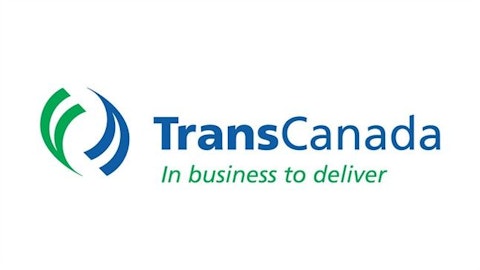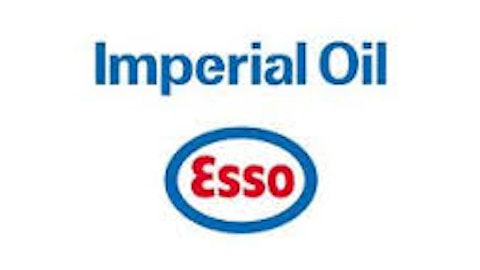Global Growth
Over 15,000 stores seems like a lot for one relatively-small country, but surprisingly 7&i has more growth in Japan. The Shikoku-region of Japan, for example, has no 7-Eleven locations as of February. While there is still more growth in its home country, elsewhere in the world is where the company’s real future growth is located.
North America is its next largest operation region, with nearly 8,200 locations. Although formally a nationwide brand in the United States, the problems I mentioned previously in the 1980’s forced 7-Eleven to pull back, closing stores around the country. Today 7-Eleven in the United States is brand mostly located along the Northeast Corridor, the West Coast, Texas and Florida (and a few states in between). As of the end of 2012, there were 14 states with exactly zero 7-Eleven stores statewide (as well as Idaho and Kentucky, with only 1 store location each, Iowa with only 2, Vermont with only 3, South Carolina with only 4, and similarly low store counts in other states). Not many companies have the chance to grow into a nationwide retail leader twice. Poor management in the 1980’s has inadvertently created a great U.S. growth opportunity for investors in 2013.
Being a Japanese company, it should come as little surprise that 7&i looks to their fellow Asian neighbors for growth. South Korea has been one of 7-Eleven’s most successful countries outside of Japan, where they are Korea’s No. 1 convenience store brand. Since the acquisition of 7-Eleven in 2005, the South Korean store count has increased from 1,179 in 2004 to 6,986 in 2012. Other major countries of operations include Thailand with 6,822 stores and Taiwan with 4,852 stores. Recently China has become a particular area of interest for the company, where 7&i established new Chinese subsidiaries just last year. Currently there are 1,919 7-Eleven store locations in China. Look for that number to grow substantially over the coming years
Retailer or Real Estate Company? An argument can be made that 7-Eleven is more like a real estate operator than a traditional retailer. Operating primarily a franchise business model throughout the world, most of 7-Eleven’s stores operate as what the company refers to as “C-type franchised stores.” A C-type franchise is one in which 7&i owns both the land and the building of their store locations. 7-Eleven leases these properties out to their franchisees under 15-year agreements. While the individual franchisees are responsible for the daily management of their stores, 7-Eleven simply collects rent payments and various fees from their tenants-franchisees. The various fees include royalty fees and advertising fees, which are a percentage of their franchisees sales, as well as a large one-time franchisee fee paid at the start of a new or renewed franchisee agreement. This creates a fairly predictable long-term revenue stream, which has helped to make 7-Eleven one of the world’s largest retail companies.
In Japan, 10,394 of 14,638 franchise locations operate as these C-type stores. Over in the United States (excluding Hawaii) and Canada, that number is 5,493 C-type stores out of 5,870 franchise locations. In total, 7&i owns about 1.26 trillion yen worth of real estate property worldwide (about $12.73 billion USD as of the July 1 exchange rate).
North American Alternative
Aside from 7-Eleven, the North American convenience store retail space is very fragmented, comprised of dozens of small corporate and independent operators dispersed throughout the continent. Some of the larger regional convenience store brands are owned by oil refiners and function as their retail gasoline subsidiary. A few brands do operate as publicly-traded pure-play convenience stores, though. One of the largest is a newcomer to the market, CST Brands Inc (NYSE:CST), the result of a recent spin-off. To help unlock shareholder value and simplify their business model, the oil refiner Valero Energy Corporation (NYSE:VLO) chose to spin-off their retail subsidiary to shareholders.
Allowed to operate as a pure-play convenience store, the expectation is that CST Brands Inc (NYSE:CST) will eventually command a much higher earnings multiple compared to the usually low multiples investors give oil refiners like Valero Energy Corporation (NYSE:VLO). One of its similarly-sized peers, Casey’s General Stores, Inc. (NASDAQ:CASY), currently sells for 21.7 times earnings, while CST Brands Inc (NYSE:CST) only sells for 10.9 times earnings. There are of course no guarantees that CST Brands Inc (NYSE:CST) will inevitably just trade at the same multiple, but even trading at 15 times earnings would result in about a 37.5% gain from today’s share price.
The spin-off will also allow the new company to focus entirely on retail. Given the fragmented nature of the North American convenience store space, that focus could involve identifying cheap acquisition targets among the smaller brands; growing within its current regions and expanding outside. Currently the company operates its Corner Store brand in Texas, Arizona and Colorado, while its Dépanneur du Coin brand serves the Toronto, Montreal and Ottowa provinces.
Foolish Bottom Line
Despite being a NYSE-traded company just a few years ago, the growth potential of 7-Eleven is not very well known by American investors. The generally poor performance of the overall Japanese stock market during the past 10 years has not exactly helped matters either (even with recent gains). For American investors willing to look to Japan for opportunities though, Seven & i Holdings Co. could deserve a place in your portfolio.
Matthew Luke has no position in any stocks mentioned. The Motley Fool owns shares of CST Brands. Matthew is a member of The Motley Fool Blog Network — entries represent the personal opinion of the blogger and are not formally edited.
The article Investing in Japanese Convenience originally appeared on Fool.com is written by Matthew Luke.
Copyright © 1995 – 2013 The Motley Fool, LLC. All rights reserved. The Motley Fool has a disclosure policy.





